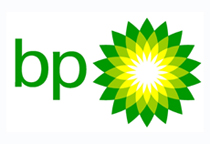Lifting Of Ban Should Return BP To Competition, Analysts Say
 The agreement to allow BP to bid on new oil leases in the Gulf of Mexico and elsewhere in the United States is an important milestone in the company’s efforts to return to normal after the Deepwater Horizon rig explosion nearly four years ago, analysts said. The agreement announced on March 13 between BP and the Environmental Protection Agency lifts the 2012 ban on BP doing new business with the United States government. The ban was imposed as a response to BP’s role in the 2010 well blowout that killed eleven rig workers, spilled millions of gallons of oil, and contaminated hundreds of miles of coastline.
The agreement to allow BP to bid on new oil leases in the Gulf of Mexico and elsewhere in the United States is an important milestone in the company’s efforts to return to normal after the Deepwater Horizon rig explosion nearly four years ago, analysts said. The agreement announced on March 13 between BP and the Environmental Protection Agency lifts the 2012 ban on BP doing new business with the United States government. The ban was imposed as a response to BP’s role in the 2010 well blowout that killed eleven rig workers, spilled millions of gallons of oil, and contaminated hundreds of miles of coastline.
Analysts said the settlement will not have a large immediate impact on BP’s financial performance, but that it will benefit the company in the long run. An end to the ban should help ease doubts over time among investors and potential partners, they said.
Along with bidding on new exploration tracts, BP will also be able to resume supplying the United States military and other government agencies with fuel, a business which may bring in $2 billion or more a year in revenues but has low profit margins, according to the company.
The company was threatened by being locked out of auctions for new exploration acreage, particularly in its profitable Gulf of Mexico producing area. BP continues to explore oil fields on leases in the Gulf of Mexico acquired before the 2010 accident. An oil company’s resource base inevitably dwindles if it cannot gain access to new oil and gas.
Both BP and the United States government needed a deal, analysts said. BP has invested $50 billion in American energy projects over the last five years, making it the largest energy investor in the United States, the company says.
 The agreement to allow BP to bid on new oil leases in the Gulf of Mexico and elsewhere in the United States is an important milestone in the company’s efforts to return to normal after the Deepwater Horizon rig explosion nearly four years ago, analysts said. The agreement announced on March 13 between BP and the Environmental Protection Agency lifts the 2012 ban on BP doing new business with the United States government. The ban was imposed as a response to BP’s role in the 2010 well blowout that killed eleven rig workers, spilled millions of gallons of oil, and contaminated hundreds of miles of coastline.
The agreement to allow BP to bid on new oil leases in the Gulf of Mexico and elsewhere in the United States is an important milestone in the company’s efforts to return to normal after the Deepwater Horizon rig explosion nearly four years ago, analysts said. The agreement announced on March 13 between BP and the Environmental Protection Agency lifts the 2012 ban on BP doing new business with the United States government. The ban was imposed as a response to BP’s role in the 2010 well blowout that killed eleven rig workers, spilled millions of gallons of oil, and contaminated hundreds of miles of coastline.